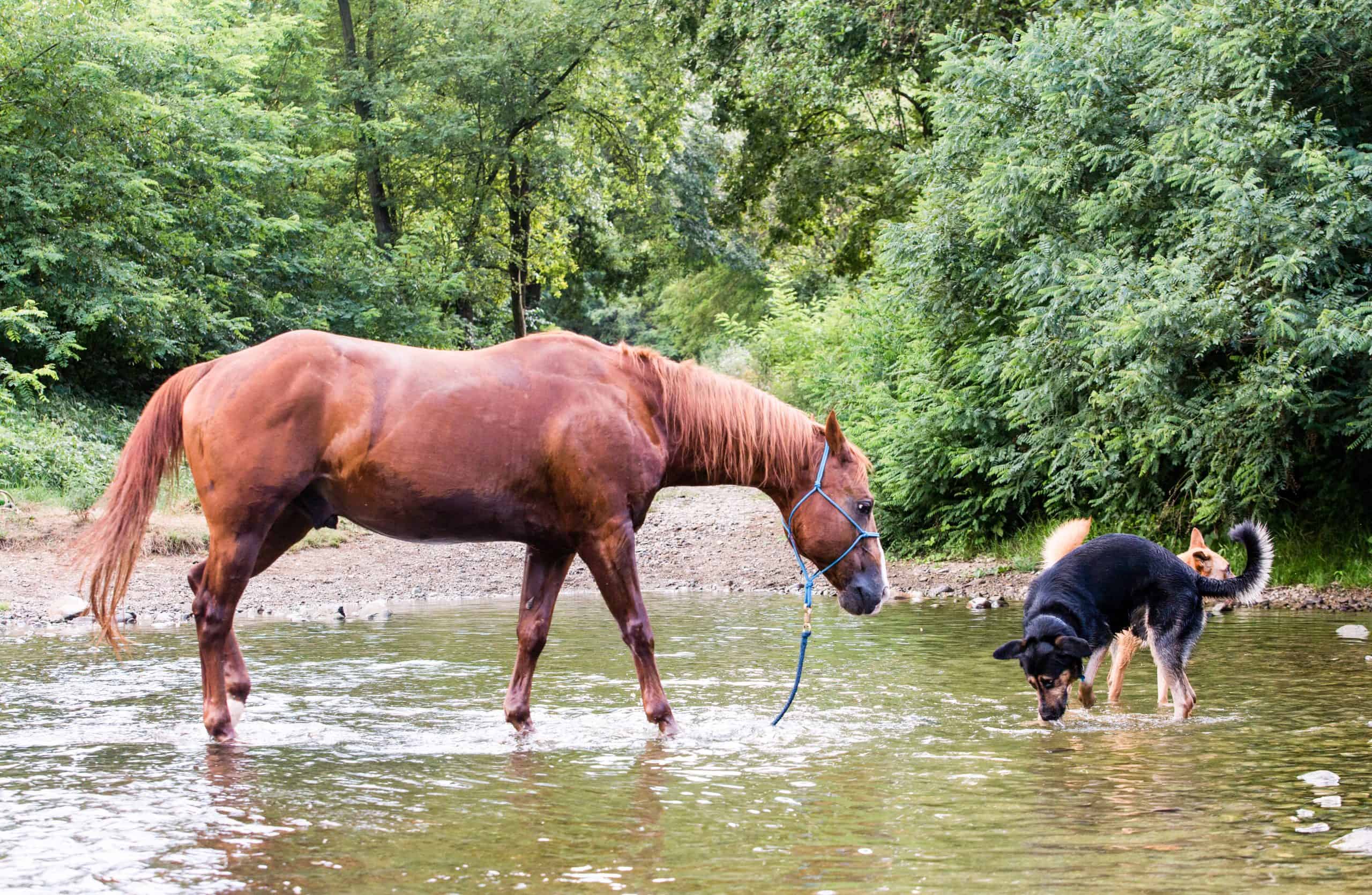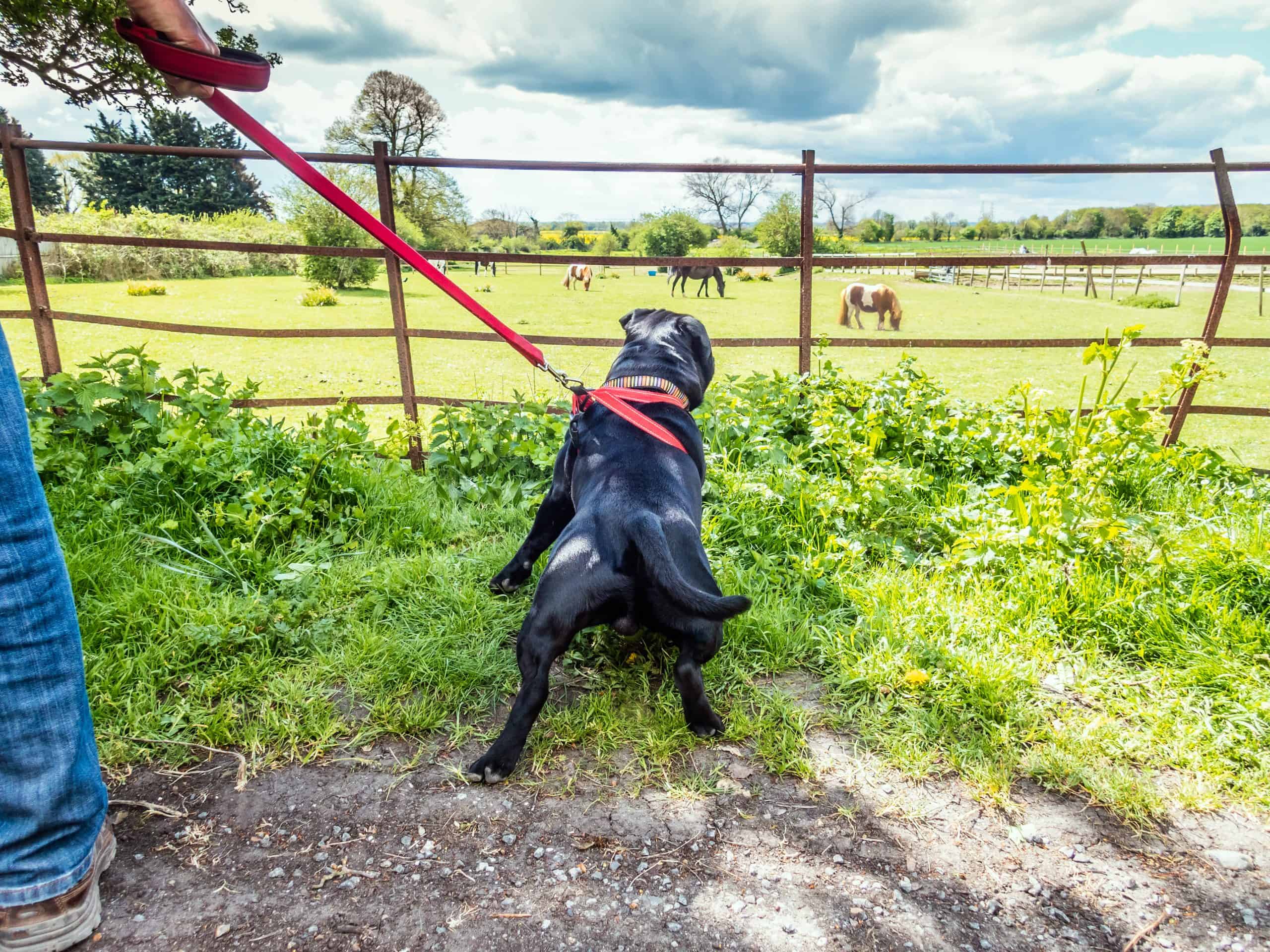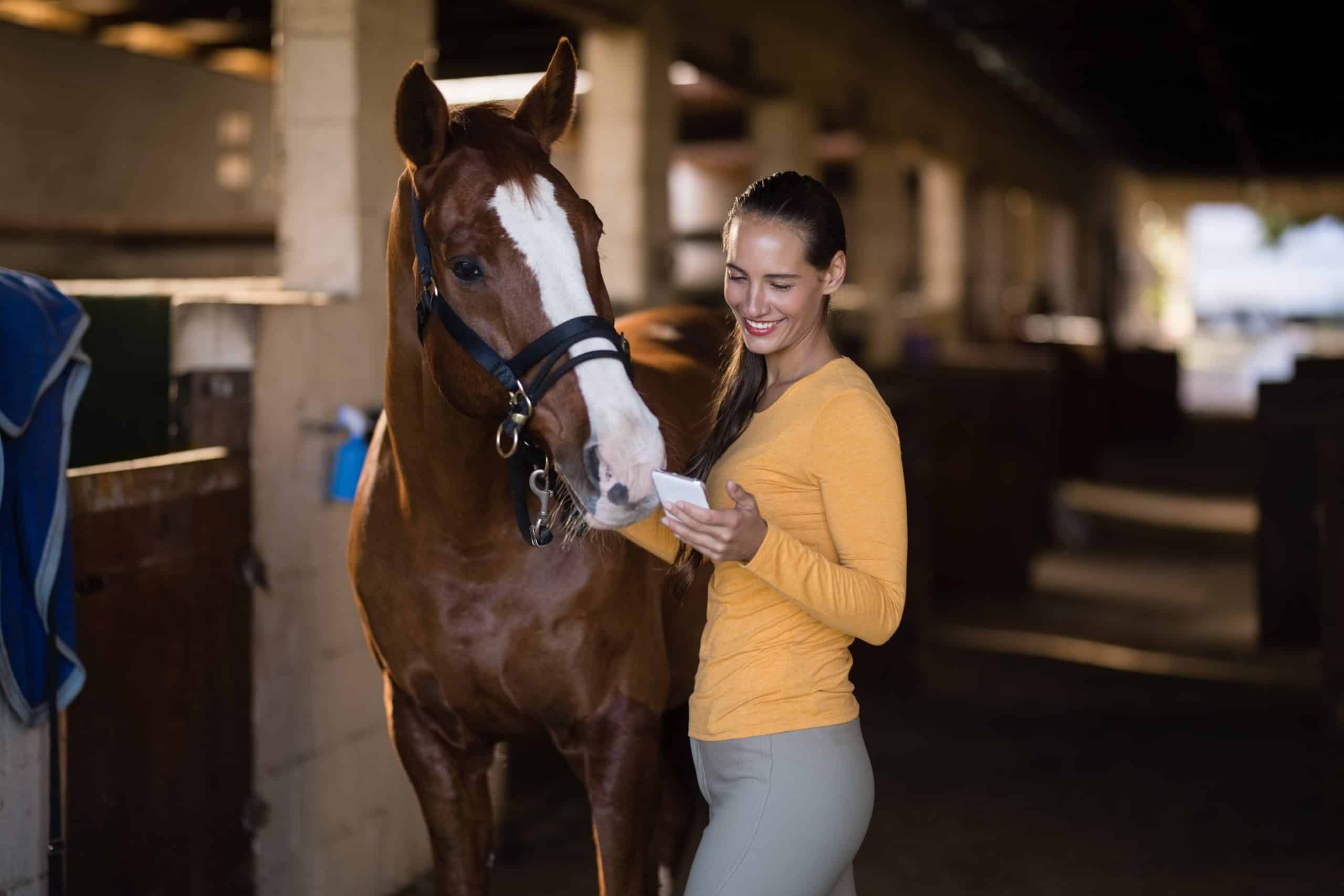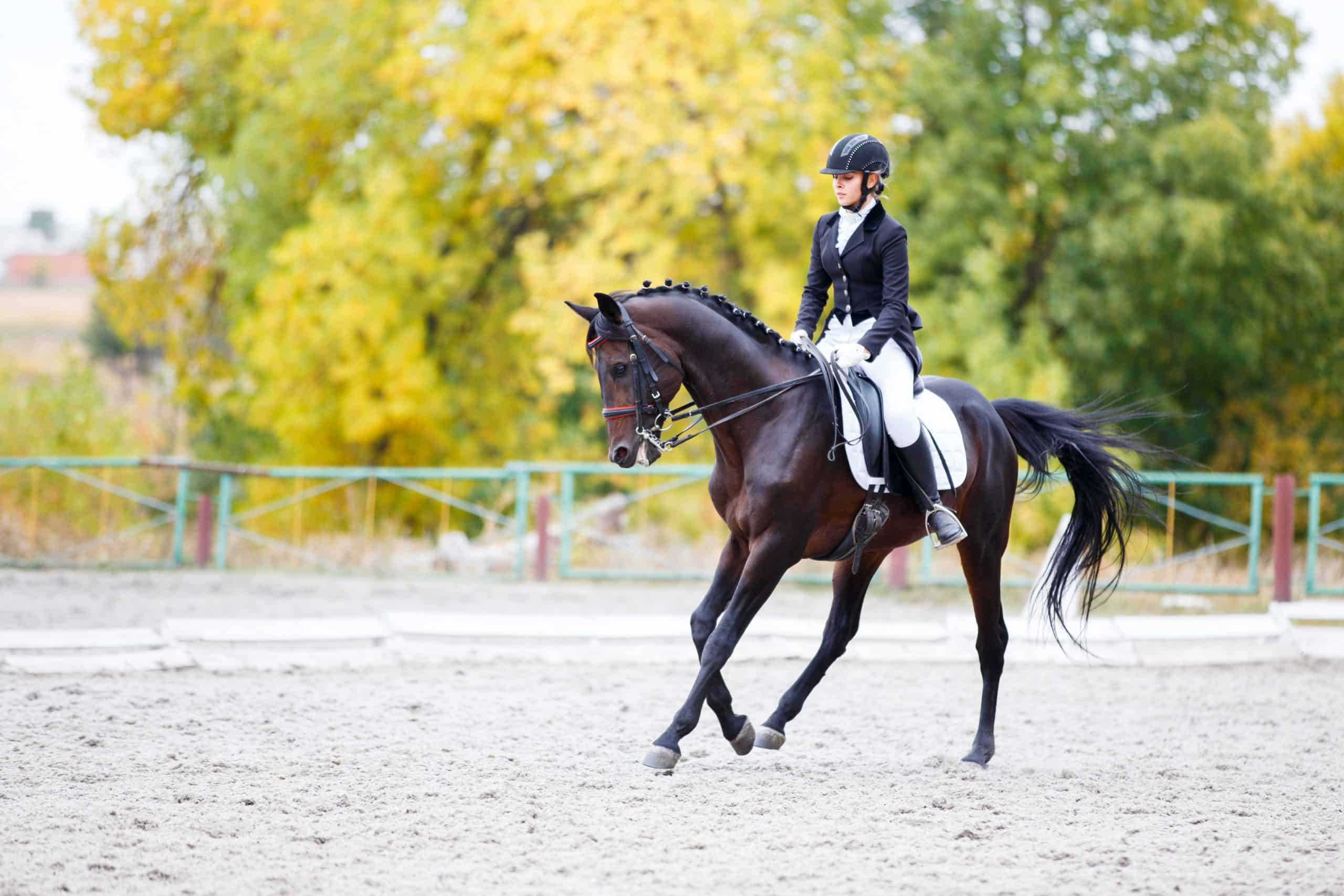Measuring intelligence—whether it’s between humans or completely different species—is far from easy. Part of the problem is that there are so many different kinds of intelligence to consider. And when it comes to horses and dogs, things get especially complex. The question of whether or not horses are smarter than dogs doesn’t have a simple answer.
We all know both dogs and horses are capable of some pretty incredible things. Dogs detect illness and lead the blind, and horses memorize difficult dressage patterns and can sense incoming weather. There is no direct way to compare horses and dogs in terms of intelligence.
It’s like how you can’t call a fish stupid for not knowing how to climb a tree. Understanding animal intelligence requires a deeper look into the linguistic, logical, social, and emotional capabilities of each species.

We can’t judge whether horses are smarter than dogs without first defining what exactly makes an animal intelligent. Is it whether or not they can do complex mathematical equations without a calculator? Or is it their ability to survive without human intervention?
According to Zoo Portraits,
“We can define animal intelligence as the combination of skills and abilities that allow animals to live in and adapt to their specific environments.”
With this definition, we need to look at an animal’s ability to adapt to their surroundings. How do their behaviors affect their basic quality of life, and do they make decisions that can improve their living circumstances?
Animal behaviorists also look at things like emotional understanding, social connections, and memory retention to determine an animal’s intelligence. By assessing these capabilities, we can start to compare our equine friends to our tail-wagging canine family members.

One of the primary differences between horses and dogs is all about instinct. While most domestic dogs aren’t responsible for finding their own meals, they’re still considered predators in the hierarchy of the animal kingdom. Their bodies are built to take down prey, and that predator status comes with a few basic instincts. Hunting for food isn’t easy, and it’s a skill that takes a certain amount of intelligence.
Horses, on the other hand, are prey animals. While a dog’s instinct tells them how to stalk and attack, a horse’s gut instinct is always to run away when things get dicey. It’s a lot easier to munch on grass than it is to take down a rabbit, and behaviorists generally agree that predators have a kind of intelligence that prey animals lack.
Avoiding a predator, however, comes with its own set of skills. Horses employ several tactics to keep themselves safe, and one of those is to join forces with other horses. As herd animals, horses are able to protect themselves from harm, and living within that tight-knit community also gives them a strong sense of emotional and social intelligence.
Emotional intelligence is often referred to as the ability to manage your own emotions and recognize those same emotions in others. There’s also communication, empathy, and the ability to form relationships.

In part thanks to the herd dynamic, horses exhibit a strong sense of emotional intelligence. They form relationships with other horses within the herd, and studies show those connections also extend to humans. Research shows that, like dogs, horses can recognize human emotions. And while dogs typically spend most of their time around their human families, horses manage this skill while spending significantly less time around human caretakers.
Horses have the emotional intelligence to recognize when a person is feeling happy versus sad. They can also distinguish between people and identify their favorite familiar faces and voices. Their abilities to recognize and process the emotions of others have even led to some horses learning incredible perception-based skills.
A horse named Clever Hans, for example, is revered as one of the smartest domestic animals of his time. It was once believed that Hans, an Orlov Trotter horse, could do complex math and word problems. He was once asked, “If the eighth day of the month comes on a Tuesday, what is the date of the following Friday?” Hans responded by tapping his hoof eleven times and delivering the correct answer.
It was later discovered, however, that Clever Hans’ intelligence wasn’t what everyone thought. Hans wasn’t actually doing math in his head. Instead, he had learned to detect the most subtle human emotions through visual reactions. Hans responded to a person’s involuntary body language to give the correct answer every time. When Hans was blindfolded or otherwise unable to see the person who asked the question, he would simply keep tapping his foot with no clues to give him the right answer.
While Hans couldn’t actually do math, he did show that horses have a kind of emotional intelligence that is seen in few other animal species.

Another facet of measuring animal intelligence is how quickly they can learn a new skill and remember that newfound knowledge. At first glance, it might seem like dogs have the upper-hand on this one. From the basic “sit” to more complex behaviors, we all know dogs are capable of learning countless skills. They also retain that information for what could be their entire lives.
But while trick training is more closely related to dogs than horses, you can’t discount a horse’s ability to learn and remember. Depending on the discipline, horses learn complex skills and behaviors. Dressage horses are an obvious example, but even pleasure horses used for nothing but trail riding pick up and remember certain skills.
Horses and dogs are trained in similar ways. They both respond to rewards and relate certain behaviors to their accompanying reactions. How quickly a dog or horse learns is related more to the trainer’s skill and not the individual animal’s intelligence. Either way, both horses and dogs are able to understand, anticipate, and remember learned skills.
While horses possess strong emotional intelligence and an intuition that’s hard to beat, dogs learn new skills quickly and adapt well to life with humans. Both animals are capable of impressive cognitive abilities, and evidence shows both horses and dogs have their strengths and weaknesses.







